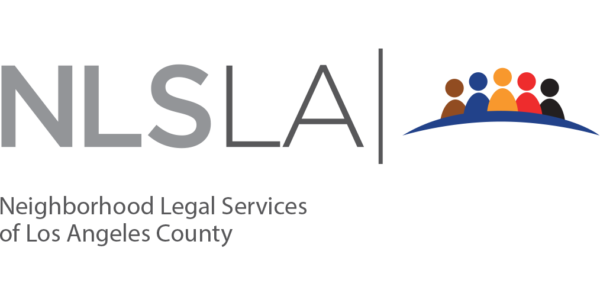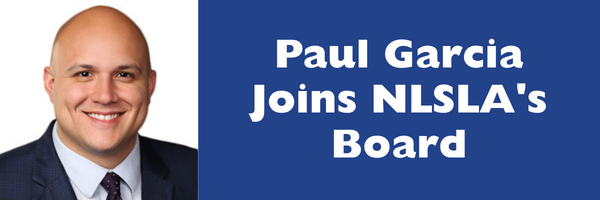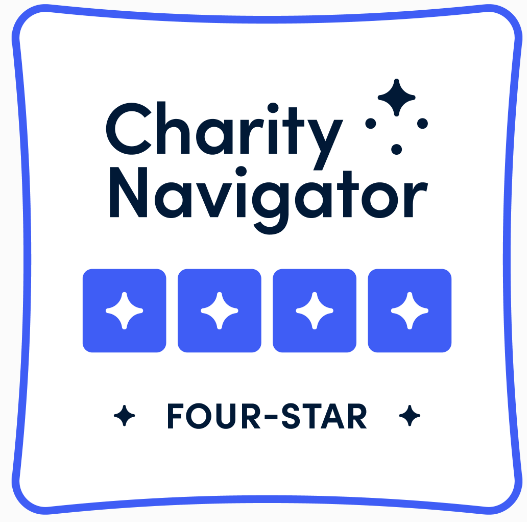Paul Garcia Joins NLSLA’s Board
When Paul L. Garcia was in law school at USC, he enrolled in a class on the legal and social determinants of health, where he learned how a lack of economic opportunity, a dearth of affordable housing, and limited access to meaningful health care—can be addressed by a lawyer who understands socio-economic factors compromising patients’ health, patients’ rights and options, and where they can find help. Paul discovered that by understanding patients’ medical-legal problems, health outcomes can be significantly improved.
“It was my favorite class in law school,” he said. “It was probably the first time I thought ‘Oh, all this legal stuff I’m learning can actually have impact on people’s lives—and in particular on marginalized people’s lives.”
That class was taught by NLSLA’s own Barbara Siegel as part of a larger effort to bring doctors and lawyers together to improve health for low-income individuals, families and communities. It was Paul’s first introduction to NLSLA, and he could not have guessed that, more than a decade later, he would join the organization’s Board of Directors.
Paul grew up in Altadena. His mother, a human resources professional and educator, has served on various nonprofit boards. And his father, Daniel P. Garcia, became one of the first Latino partners in a major law firm in the country, and leveraged his success to help marginalized communities.
“He committed a substantial amount of his time to helping others,” Paul said. “And because of that, I always had in the back of my mind that the point is not just your personal gain, the point is to get in a position where you can help people.”
Immediately after college, Paul spent a few years in Hawaii working as a counselor for young people whose lives were entangled in the criminal justice system.
“I felt like I was making some difference in the kids’ lives, but not a systemic difference,” he said. “And I started to think about how to acquire the skills and knowledge that would allow me to make systemic change.”
It was around this time that he decided he wanted to become a lawyer.
“I didn’t want to go to law school and represent a gas company,” he said. “And there was a natural progression towards healthcare.”
After graduating, Paul served as an Executive Fellow, through the Capital Fellows Programs, for Covered California, where he worked to implement state and federal health care reforms. He was then hired by the California Department of Health Care Services, where he provided legal counsel to develop and support Medi-Cal managed care financing and reimbursement policy.
Today, Paul is a partner in the regulatory department of Hooper, Lundy & Bookman.
“I represent providers who care for elderly and poor people through government programs,” he said. “I didn’t go to medical school, and I’m not going to be the one providing medical services. But, I’m a small part in helping them keep the lights on..”
Last year, Paul assisted another partner at his firm who is a nationally recognized Medicaid and Medicare expert—in helping a family member get back on Medi-Cal.
“It was exceedingly complicated, and that’s for two people who have substantial expertise in this area,” he said. “And it reminded me that the barriers to entry are substantial.”
Those barriers are part of the reason Paul chose to join NLSLA’s board, and to help the organization in its mission to expand access to healthcare for people living in poverty.
“Because if it’s overwhelming to me, what’s it like for someone who is struggling to survive?”



